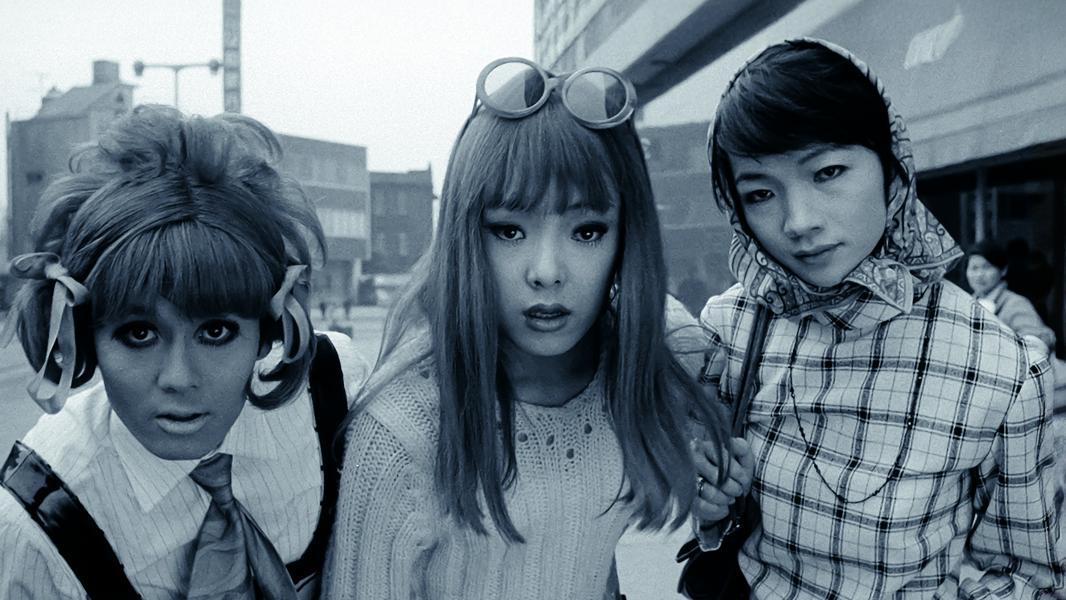
english below
Het heerlijk chaotische FUNERAL PARADE OF ROSES toont een onbeschaamd portret van de nocturne queer undergroundcultuur in het Tokio van de jaren zestig. Filmmaker Toshio Matsumoto omschreef de structuur en vorm van de film als het laten stukvallen van een spiegel waarna je de scherven weer opraapt. De exuberante sixties esthetiek van deze Japanse cultfilm verbindt popart met Bertolt Brecht.
Transgendericoon Shinnosuke Ikehata speelt Eddie, de nieuwe gastvrouw van Bar Genet, wier zelfvertrouwen en seksualiteit zowel aantrekt als afstoot. Ze raakt verstrikt in een ménage à trois, belandt op demonstraties, en danst honderduit op vervormde rockmuziek.
Het gerucht gaat dat FUNERAL PARADE OF ROSES een grote invloed heeft gehad op Stanley Kubrick’s A CLOCKWORK ORANGE. Hoe het ook zij, de film is een prototype voorbeeld van de Japanse New Wave dat veel aandacht had voor radicale politiek, queer cultuur, en de veranderende rol van de vrouw binnen de maatschappij.
We vertonen deze cultfilm als deel van ons focusprogramma UNBOUND SELVES: QUEER VOICES, waarmee we de bevrijdende representatie van “de ander” op het witte doek vieren.
ENG
The film is in Japanese with English subtitles
The delightfully chaotic FUNERAL PARADE OF ROSES depicts an unashamed portrait of nocturne queer underground culture in 1960s Tokyo. Filmmaker Toshio Matsumoto described the film’s structure as letting a mirror fall to pieces, after which you pick up the shards again. The exuberant sixties aesthetic of this Japanese cult film connects pop art with Bertolt Brecht.
Transgender icon Shinnosuke Ikehata plays Eddie, Bar Genet’s new hostess, whose self-confidence and sexuality both attract and repel. She gets caught up in a ménage à trois, ends up at demonstrations, and dances to distorted rock music.
FUNERAL PARADE OF ROSES is rumoured to have influenced Stanley Kubrick’s A CLOCKWORK ORANGE. Be that as it may, the film is a prototypical example of the Japanese New Wave that paid great attention to radical politics, queer culture, and the changing role of women within society.
We are screening the film as part of our focus programme UNBOUND SELVES: QUEER VOICES, highlighting the liberating representation of “the other” on the silver screen.



